|
The “What are we going to do about it?” question was followed up with taking stock. A Diploma in Counselling Hypnotherapy, a Degree in Education, a couple of kids books that were shelved but not forgotten – it’s obvious right? Now, one of the things you need to know about Megan is that she is a planner, her world is happiest when there is a plan and we know that Rule #1 is “don’t change the plan” (the Transporter taught us that – thanks Jason). Our tea time visits quickly switched into planning sessions. Countless pages of questions, book formats, publishers, pitches, software, hardware, audios, liabilities…..illustrations? Each question led to another, and another, and another. Each step in the process created two more steps, so needless to say, the plans changed with each development, but somehow we managed to keep Megan sane and continued to move forward. At this time we were both working full time plus hours. There were late night fact finding googley missions, early morning business meetings, long telephone calls and loads of research. But when all of that information is gathered, where do you start? The Big Picture, the Goal, the End Game, essentially you have to begin at the End – Crazy Right? I know, but without that mission, what drives you to take the next step? This is what our company HAD to do: help children maintain or develop positive mental health habits; provide easy to use resources for children, their parents, caregivers and educators; provide resources for children struggling with a variety of issues; offer support materials for the folks adulting; and it also had to be wrapped up in a neat little package that would be interesting and fun too!
So we knew what the product was going to be, but before you set up emails, register your company, hire illustrators…you really need to call it something. What’s in a name? Seems simple but OMG! This is what you will live with, it will be on everything you do, your representation, and two over tired, over thinkers working together, does not make it easier! Examine everything you want this company to stand for and the outcome you want for all the children everywhere. So we stirred in the idea that it is NOT a healthy practice to look at the world through rose coloured glasses, BUT with solid health habits which reframing is such a huge part of (yes that is another blog…later), it left us with the simple fact that IS a pretty rosy world if you are looking through the right frame…and “Rosy Window Productions” was born!
0 Comments
It was a dark and stormy night…no actually it wasn’t, I’ve just always wanted to begin that way. We are often asked how Rosy Window Productions came to be. There are also times when I wish people would ask, and listen to the answer. As with any new business there are always the people that scratch their heads and maybe don’t really believe in what you are doing. They smile and nod, and say “that’s nice”. I could say at this point what I think they are thinking, with their smile and nod, but one should really not try to read minds (bad mental health practice – yes there will be a blog about that…later) If I had to guess some of the key phrases might be – dream too big, never make a living, nice hobby, you get the idea. So here it is the story of the adventure that I embarked on 5 years ago, with one of my best friends, my rock, my business partner, my daughter.
One of my favourite places to be is at a kitchen table with a cup of tea with one of my three daughters, we discuss our lives, work, loves, challenges, and the world in general. Megan, my oldest, had trained to become an educator and worked long hours teaching elementary school. Many times our conversations would be around her students, or situations that I had come across in my Counselling Hypnotherapy Practice. My part of the conversations that I remember went something like “…if only someone would have helped this guy out as a kid, he wouldn’t have struggled his whole life with this…” (a repeat of many similar discussions). Megan’s classroom stories reflected the kids that would potentially become the adults who would seek help from a counsellor, the kids that had low self-esteem and the obvious uptick in the youth anxiety cases in both the classroom and my office. The statement that Megan made is vivid in my mind “So what are we going to do about it? Everyone sits around the table and “saves the world” but not too many people do anything about it. “What are we going to do about it?” That simple question, turned into a powerful statement, a call to action that has changed our lives. If you’re anything like me, social media is wearing a little thin on you right now. It’s a tricky thing. You want to check-in, stay updated on what is going on, and stay connected in this time where many of us are practicing social isolation. But, oh man, so much sad, and frustrating news! Listening to people argue, trying to sort out fact from fiction. Wondering if your doing enough, not enough, or too much to keep your loved ones safe; to be a responsible human. I thought it was time for a diversion. Let some tension go and let a little sunshine seep in… and maybe a little laughter too. I had a friend comment once on how the term ‘laugh out loud’ really annoyed her. With texting and social media, "lol" gets used a lot, and what bugged her, she told me, was how she knew people were typing it, but not actually doing it. Maybe smile, or a snort, but that was probably it. People aren't literally "laughing out loud". Her comment did make me LOL, but it also got me thinking about those things that truly catch me off guard, and make me laugh. Don’t get me wrong, I enjoy a good meme, but it's some of the things kids say that make me actually giggle. I love reading funny tweets from parents, or getting a text from a friend or relative sharing some of hilariousness that comes out when little people speak their mind. So that's all this is, a silly, happy little post to take your mind off of life for a moment, and to share a few of the funny things said by some of the kids in my world. And if it doesn’t make you LOL, I hope it at least brings out a smile or a snort. Thanks to the friends and family who allowed me to share these. Mini Musings “I wish I was a dog so I could eat all the day and wear no clothes." - Disappointed 4 year old, on the long hours between snack-times. “Oh! Alligator poop!” - Surprised 2 year old, on dill pickles. “My head says it wants a tea party and my belly says, it wants a snack with the tea party” - Introspective 3 ½ year old, on important decisions. “I’m just like Cinderella, I have to do eevvveeerrrything!” - Distressed 4 year old, on being overworked and underappreciated. “I just wiggle my bones, then wiggle my brains, and then my ears.” - Knowledgeable 5 year old, on how to wiggle one's ears. “Today, we should try weedwacking with no pants on!” - Cheerful 3 year old, on potential family activities.
Questions & Comments “It’s dark out! was I in the toilet too long?” - 4 year old, too wrapped up in an intense game of go-fish to notice the passing of time, until stopping for a potty break. “Was that when you were little, Dad?” - 8 year old, learning a parable of Jesus From the Tub: “Look Mom! I’m washing my own person!” -2 year old “Dad? Do Dinosaurs have penises?” - 3 year old “Is poop stored in my bum cheeks?” - 3 year old More on that: “I was holding my poop in my belly so you could read me a book. Good thing I have butt cheeks!” - 4 year old These Things Happen “I accidentally put my new underwear over my old underwear” - Dejected 8 year old getting ready the day “Mom! Mom! There’s something wrong with my face! There’s a hole in it! I was looking at myself in the mirror and it only happens when I do this: *smiles* See!?” - Panicked 7 year old with dimples “My knee elbowed me in the head.” - Injured 8 year old “I was dreaming about at bath, and now my pants are off.” - Sad & pantsless 3 year old at 4 a.m. Cover Bands “Dir-ty cheese, UN. DER. NEATH!” - 4 year old's, Dirty Deeds by AC/DC “Cuz I’m a lunch. box. handle…” - 3 year old's, Jukebox Hero by Foreigner “Kataaaawa, Kataaaawa!” -12 year old's, Devour by Shinedown “Someone once told me, the world was macaroni. I ate the sharpest tool in the shed” - 8 year old's & 10 year old's duet, All Star by Smash Mouth Important Conversations Dad: Get back up here and eat your dinner. 3 year old from under table: Chicken in sauce just isn’t really my thing. 4 year old brother: I am going to be a police when I grow up. 2 year old sister: I’m be a bad guy. Bwa-ha-ha-ha! Grandma: It's Superman! 3 year old in superman costume: No, it's me! See my head poking out!? Sisters getting lost while driving in the city: Grandma, from backseat: Great, the pilot is lost and the navigator doesn't know where shes going. Wide-eyed nephew, from the backseat: Which one is the pirate and which one is the alligator? 10 year old: What type of leaves are these? Mom: Its still spinach, just like the last time we ate it. 10 Year old: I know that, but what kind of plant is it from? Last, But Not Least
Kindergartner’s yearbook sign: When I grow up I want to be…… a normal guy. Hope these little gems brought happiness to your day, and please don't hold out on us if you have some of your own to share! Add your funny kid quotes, 'definitions' and cover songs to the comments below (or at least text them to your mom. She appreciates it. 😊) Cheers! -M It has been said that people who are dealing with anxiety and depression live most of their time in the past or in the future and very little time in the now. It makes perfect sense. The anticipation of coming events, remembering an embarrassing moment or a "I wish I would have..." from our past. These have been struggles for me and I just couldn't figure out how to get to the NOW of my life. AND THEN - I was researching, gathering, and came across the article about being present - it just doesn't happen, silly me, I thought it should! As with everything that is habitual (good or bad) - we need to train the brain to get there! HOLY MOLY life is so busy that it is very challenging not to be distracted, always trying to see around the corner to what is next, worrying that something has been forgotten, especially balancing jobs, home, family, schedules, YIKES!  You don't ever expect to run a marathon today, so start small. Engage your senses to stay in the moment, the sound of the keys on the keyboard as you type, the sounds of the birds and the colours of spring as you walk, the fragrance of fresh laundry, focusing on what another is saying, not only tasting your food but noticing the texture and aroma. It's ok if you need to bring your mind back and perhaps it is only minutes at a time to start, soon you will be reading a book and not having to read the same page twice, remembering that person's name and the conversation you've just had. And the very best part of all is that you will enjoy those moments in all their glory, without the feeling of rushing through them. Remember: Every thousand mile journey starts with a single step. -B Note: The following is an excerpt from the Rosy Window, online guided imagery course for parents and caregivers. Full course available summer 2020. We all want the best for our children and being a positive, and effective guide on their journey is an important, yet daunting task, to say the least. When asking what we can do to support them in becoming the best versions of themselves, the answers are never easy, and are often different for each child and each family. However, there are a couple overarching themes when it comes to improving the life of a child. Successful adults can often attribute their accomplishments and happiness to one or both of the following: possessing a growth mindset and having a supportive person in their lives to whom they can look up to and feel important around, i.e., a mentor.
The Power of a Mentor When researching resilience in children, one of the common factors was mentoring. Resilient children often had at least one adult take notice, and step in to support them in some meaningful way (Bellis et al., 2017). In Rom Brafmans book, Unlikely Success: Why Some People Flourish Where Most Others Fail (2011) he calls these people “satellites”. These ‘satellite’ people offer constant, unconditional support and acceptance, “with no strings attached” (Brafman, 2011, ch. 7). Meaning that they regard, in this case, the child with positivity and offer their time and caring while expecting nothing in return. Brafman (2011), goes on to site studies in the workplace, orphanages, and in organizations like Big Brothers & Big Sisters, where, “the presence of a supportive, satellite figure is one of the differentiating variables that separate those who overcome life's obstacles, from those who succumb to them”(ch. 7). In the case of Big Brothers & Big Sisters, a one and a half year study by Tierney, Grossman & Resch (2000), looked at a group of children paired with a Big Brother or Sister, and a control group of children who remained on the waiting list. The results showed that children actively participating in the program were 45.8% less likely to use drugs, 32% less likely to engage in violence, missed 52% less days of school and were reported to lie to their parents 37% less often (p. 20-28). Mentors are not just for those children deemed ‘at risk’ or ‘in need’. Studies and interviews with a number of high-achieving adults, show that having a mentor with the correct qualities can help build confidence and success in anyone at any age. A study conducted by Ellen A. Fugensun of George Mason University, showed that adults who had mentor in the workplace contributed greatly to career growth, no matter their job position or level (Brafman, 2011, ch. 7). The Handbook of Youth Mentoring Second Edition (2013), shows how a mentor can help to develop the positive strengths and mindsets associated with building social and behavioral skills as well as cognitive abilities (this entire handbook is an amazing resource and can be found online in Google Play or through Amazon). Growth Mindset vs. Fixed Mindset In her book Mindset: The New Psychology of Success, Dr. C. S. Dweck outlines the two types of mindset held by children (and adults); fixed and growth. With a fixed mindset, the person views intelligence as a set trait and something that does not, or cannot change over time. These types of children believe that they are as smart as they are ever going to be, and that is that. Growth mindset children, on the other hand, see intelligence as something that can be developed. They believe that learning and practice can lead to having a higher level of intelligence and this belief lends itself to a number of positive traits including a desire to learn, perseverance and a tendency to embrace change (p. 245). Most importantly, children with a growth mindset view failure as a learning opportunity, rather than a personal statement on how smart or capable they are. Cultivating a growth mindset in your children is invaluable, not only in increasing their chances of success, but in supporting a healthy vision of who they are as a person and what they can achieve. Practical Application: Giving your child the advantage. The following are some simple ways you can facilitate a growth mindset in your child, as well as information on how and where to find a “satellite” figure or mentor. It should again be noted that these two strategies are not reserved for those children who we deem “in need” of extra support, believing that intelligence can evolve and be improved is a mindset that breeds success and personal fulfillment in anyone and everyone. And having a mentor, an outside influence with the aforementioned traits is again, an advantage to all people, no matter their age, station, aspirations, desires or personal views. Mentors and growth mindsets are an asset for everyone. Two Keys to Fostering a Growth Mindset As a caregiver, teacher or friend, one key to helping children in believing that intellectual growth is possible, is to demonstrate the belief; be the example. So what does that look like? 1. Embrace failure and learn from it. In an interview with Sara Blakely, the founder of the multi-national, billion dollar Spanx company she attributes much of her success to the way her father viewed failure as highly valuable. Dinner conversation often centred on what each family member failed at that day and what they would do differently next time. These chats led Sarah to adopt a key aspect of a growth mindset, and use her failures as scaffolding to reach her goals. Each unsuccessful endeavor meant a way to learn and improve. (Robbins, 2020). Discussing failure in this light is a great practice and one you can begin right away. Remember that it is important to not only adopt this approach with things your child may be struggling with, but also with your own failed attempts as well. Talk about something you tried that did not go as planned, and be sure to think aloud, or discuss what you learned from the experience, and what you will do differently next time. There is zero shame in failure. It is how we learn. Help your child break down their mistakes, misadventures and disappointments in a positive, productive way, gathering the important information to make a better plan for next time. 2. Practice Productive Praise. When your child is successful, the way you react to their success and the form your praise takes is important. There are several schools of thought on praise, and in keeping with our goal of fostering a growth mindset, we look at the advice shared by Dr. Dweck (2006), give praise in a way that comments on the child’s efforts and achievements, rather than their personality traits (p.178). This means using statements such as, “All of your practice and hard work really paid off! Look how well you’ve done on this test!” rather than, “Great job on this test! You’re so smart”. The first statement leaves room for having a productive conversation and pride in themselves, no matter the outcome of the test. If they were disappointed with their mark, the conversation could address the amount of hardwork and practice the child has done already, and how and what they could do differently in the future to improve. Adversely, if you praise the good test results by attributing it to their level of intelligence, if they are disappointed with the marks they got they will blame themselves for not being “smart enough”. This will potentially lead them to view the test results as out of their hands and not seek ways to do better next time. Helpful words and phrases: Praise their:
Mentors/Satellites 1. Becoming a mentor: Roles and Traits. As mentioned before, the basic traits of a mentor or satelite person are as follows:
2. Finding a mentor. While being a role model for your children is paramount, one of the key elements of children having a satellite person in their life is that they are, or are perceived as, someone on the ‘outside’ of the immediate family circle. This can mean anything from a grandparent to a coach, but does not often imply an immediate caregiver. So where can we find that person for our children?
These two elements of success will not only impact what your child can and will achieve, but who they will become. The mental health benefits to having a mentor are well documented and possessing a growth mindset, as we have discussed, lends itself to many positive character traits and personal beliefs. The references listed below include some fantastic books and articles on these topics and more in the areas of success, and resilience in children. Further reading and research is always encouraged! -M References: Bellis, M. A., Hardcastle, K., Ford, K., Hughes, K., Ashton, K., Quigg, Z., & Butler, N. (2017). Does continuous trusted adult support in childhood impart life-course resilience against adverse childhood experiences - a respective study on adult health-harming behaviours and mental well-being. BMC Psychiatry. 17(110), 1-12. DOI 10.1186/s12888-017-1260-z Brafman, R. (2011). Unlikely success: Why some people flourish where most others fail. Penguin Random House Audio Publishing Group. Canfield, J. (2005). The success principles: How to get from where you are to where you want to be. Collins. Dubois, D. L., & Karcher, M. J. (Ed.). (2013). Handbook of youth mentoring.(2nd ed.). SAGE Publications. Dwech, C. S. (2006). Mindset: The new psychology of success. Ballantine Books. Ferriss, T. (2016). Tools of titans: Tactics, routines, and habits of billionaires, icons, and world-class performers. Houghton Mifflin Harcourt. Robbins, T. (Host). (2020, March 9). Start small, think big, scale quickly [Audio podcast episode]. In The Tony Robbins podcast. Robbins Research Institute. https://tonyrobbins.libsyn.com/start-small-think-big-scale-quickly-spanx-founder-sara-blakely-on-how-to-bootstrap-a-billion-dollar-business Tierney, P. J., Grossman, J. B., & Resch, N. L. (2000). Making a difference: An impact study of big brothers big sisters. Public/Private Ventures. Retrieved from https://www.researchgate.net/publication/242542499_Making_a_Difference_An_Impact_Study_of_Big_Brothers_Big_Sisters Who we are. (2014). Big Brothers Big Sisters International. Retrieved January 20202, from http://www.bbbsi.org/about-us/ Of all the benefits of meditation, the one that has surprised me the most and brought the most value to my life is the effects of meditation on time. I have long been well versed in the many benefits of meditation, and know that it is a daily ritual of just about every high achieving person you hear about these days. Getting it into my daily practice has been a bumpy road, but I have always persevered, knowing that it was an important part of the person I want to be. Before it became a habit, I had all the excuses for not meditating regularly and some of these may sound familiar to you; - scattered schedule - no perfect ‘place’ to do it - being embarrassed to do it in front of others - not knowing how to do it "properly" - too many failed attempts in sticking with it - not wanting to do it if I couldn’t do it for a specific amount of time - not having enough time (Ask anyone who meditates regularly and they will tell you that if you think you do not have enough time for meditation, than taking time to meditate is EXACTLY what you need!) Once meditation became a regular and constant part of my daily routine, it didn't take many days before I felt calmer, my feelings of anxiety decreased, I slept better and felt happier in general. And then the coolest thing happened, one day, as I was calmly going through my busy schedule, I checked the last thing off of my 'to-do' list and realized that I had accomplished all I had set out to do for the day and that the day wasn't even over yet! I mean, this wasn't actually groundbreaking or anything at the time, because we all have those magical days now and then, but when the pattern continued for the rest of the week, it made me stop and take notice. Shortly after this discovery, the holiday season hit and as many of you can probably attest to, though the holiday season is one of the best times of year, it can also be the worst time for self care and healthy habits. We get so busy that we put those things on hold for a while. During the holidays that feeling of having extra, or even enough time for that matter, seemed to disappear. One could chalk this up to actually BEING busier, with all that goes into family and Christmas and what have you, but during this time, I stepped away from work and school, so technically, I was less busy. After all of the merriment abated and it was back to real life, I picked up where I left off with my daily rituals and lo and behold, it only took a couple of days before the feeling of having more time returned. At that point it was as if the skies parted, light shone down upon me and I could hear the singing of angels, my prayers had been answered! As a stay at home mom to 2 toddlers, a wife, a keeper of the home, a student (I am currently working on my second degree) and a business owner, a little extra time is a bit of a big deal. For so long one of my biggest wishes in life was to have more time. I wanted at least 3 more hours in each the day, to get done all the things I wanted and needed to do. And at least 3 more hours each night, just to feel like I’ve had something close to the proper amount of sleep. I wished for my children to stay each the age they were for at least an extra year. One year of my son being 2 was not enough for me, I wanted it to all last longer. Time moved too quickly and there was never enough of it. Anyone else have this problem? According to social media, the answer is a resounding YES! Now, I’m not a quantum physicist, but I was fairly sure stretching time wasn't actually something that was possible, yet the results were right there, everyday. So, as is my nature, I started to research. Though I haven't found anything to say that meditation actually adds more time to your day, (which is probably a good thing, as this would wreak havoc on your calendar and schedule, trying to do the math to be sure your at your 9:30 meeting on time now that you're personally running off a 30 hour clock, while all the other suckers are still using 24.) But there are reasons why I was getting the results I was. It was a perfect storm of the benefits of meditation coming together to give me the illusion of bending time. With daily meditation I became;
These changes made me more productive and had me moving through my day in a peaceful and very present way. At the end of the day, when I lay down in bed and looked back on what I had accomplished, I could remember little moments that otherwise may have been lost in the busy buzzing of my brain before meditation became part of my life. Being able to remember more of the day, made it feel like there was actually more day to remember. Before regular meditation, I used to go about much of my day on autopilot, missing what was going on around me. I was often guilty of being 3 steps ahead of myself mentally - planning or worrying about what I was doing next. Or sometimes being months or years behind - obsessing over some random embarrassing incident or conversation that had happened ages ago (thank you anxiety!). Try to focus on the task at hand when you're planning tomorrow's rout for running errands or berating yourself for that time you accidentally overshared to you boss and he stared at you blankly before making a beeline for the staff room door. Living in the 'now', along with having heightened self-awareness helped me in setting more achievable goals, and being extra focused and creative allowed me to blast through my to-do lists. It is fantastic. This gift of extra time is something I want to share with the world! And if more time or presence are not something you're after, or feel you need to work on, the myriad benefits of meditation have something for everyone. Anchor Dan Harris wrote an entire book on how regular meditation just made his life “10% Happier” overall, and I mean, who can say no to that? Having trouble getting started? Here are some tips and tricks I’ve learned along the way: 5 Tips for Successfully Making Meditation a Daily Habit 1. Don’t be too picky about setting. With two small children at home, my dream of sitting in my little home gym with the lights low, my oil diffuser on and binaural beats playing over the speakers, just wasn’t in the cards. We usually do it in the upstairs living room sitting on the floor or couch. 2. Don’t put too much pressure on yourself. I’ve heard and read many a tale of the amazing, existential experience people have during meditation and was wondering what the heck I was doing wrong. Most of my meditation was just me repeatedly reminding myself to stop thinking about whatever it was my mind wandered to, and to focus on what I was doing. Finally, a wise friend, who is well versed in meditation and mindfulness told me to relax and not put so much pressure on myself, that there was no “wrong” way to meditate. She was right. 3. Find some methods that work for you and don’t be afraid to switch it up! Some days I focus on breath, some days it’s a visualization, sometimes I concentrate on chakras, sometimes I chant and sometimes nothing seems to be clicking so I just sit quietly. But I do it in some form every day - and that is key. 4. Some minutes are better than none minutes. Research shows that benefits of meditation can start with doing as little as 5 minutes a day. When I started, I did 8 minutes (which was all my kids could handle at the time - more on that next) and slowly added a minute or two over time. I’m currently meditating 15 minutes a day, with aspirations to keep slowly adding. 5. If you can’t beat ‘em, join ‘em. This was a BIG one for me. With two small kids, I tried for a long time to make time to meditate on my own. My biggest plan was to get up early enough to do it before they awoke, this failed as my son is an early riser and was hard to beat. Even if I did manage to get up before him, I was on edge listening for the baby monitor. Then I tried taking time to meditate after they had gone to sleep. This failed for a few reasons, one, again, the baby monitor, two, evening was time to be with my partner, (whom, due to my own little insecurities, I didn't love meditating in front of) and three, I was just so tired by then that the thought of anything even slightly productive (even if it was relaxing) didn’t hold much appeal.
Namaste, Lovelies! -M From before our babies are born, we begin loving them and building the foundations that encourage health & happiness. They grow and learn quickly, taking in all that is around them, like sponges. We are not in control of how they perceive information, and there are days that they must hear “no” far too many times, (especially toddlers).
But, positive reinforcement of the foundations we believe in, can be easy. During a calm moment, settling in for a nap, tucking in for the night, or just that cozy relaxed cuddle, tell them those important bits. Remind them what a good kid they are, how much you love them, what a good job they did, how smart they are. A child’s subconscious is very open, but those moments of quiet are a perfect time to reinforce foundations. -Bev Counseling Hypnotherapist, On Track Hypnotherapy Children should be proud of their accomplishments.
Pride means finding joy and satisfaction in a job well done. Pride means feeling admiration for yourself and value in what you have achieved. Pride, authentic pride - not bragging, boasting or seeking outside approval - is an essential part of self-esteem. Encourage your children to take pride in what they do and MODEL IT FOR THEM. Take pride in your accomplishments! You have accomplished so very much, from learning to drive a car, to starting a family, to getting up each morning and taking care of what needs to be done. Be it big or small - take time to feel that joy and satisfaction. What are you proud of today? As part of our children's mental health initiative, we have been offering the workshop, Guided Imagery for the Classroom: Theory, Benefits and Practical Application. For the past couple years we have traveled to school districts in Northern British Columbia, teaching educators and school staff about the value of guided imagery and how to implement it in the classroom. The course was so well received, that we were inspired to make it available to all teachers, everywhere and through the support of Northern Health and the Imagine Community Grant, this aspiration has become a reality!
We are so excited and pleased to announce the launch of our online Professional Development course, Guided Imagery for the Classroom: Theory, Benefits and Practical Application. This course is based on the original workshop of the same name, with added information, resources and insight. This free course teaches the science and theory of the mindfulness practice of guided imagery, the myriad of its benefits, as well as the whys and hows of implementing it in the classroom. This professional development course is suitable for any and all school staff and takes approximately 1.5 hours to work through, with participants receiving a certificate of completion at the end. Click on "Courses" in the rosywindow.com menu, sign up, and learn about the brilliant mental health tool that is guided imagery. Teach children the value of taking time to be mindful, while instilling healthy mental processes and moving students into a mental and emotional state of optimal learning. A huge thank you to Northern Health for their support in making this informative professional development course available at no cost. And also, for supplying each school in our local district with two copies of the mental health resource, Imagine If Maybe, You Had a Cloud. It is our sincere hope that these resources will be put to good use and that staff and students alike, will enjoy the time that they spend with Rosy Window. -M & B What wonderful times we are living in! All of the opportunities that are available for people today no matter where you live. Growing up and raising a family in a northern, somewhat remote area, there were many things that were just not available It was a given that you must travel or be away from home for many kinds of training or courses. To research, you had to visit a library and although wonderful resources were available at school and community libraries, they too were somewhat limited. Now with the power of the internet there is a plethora of information at our fingertips! Abundant on-line courses and even university courses that may reduce the number of years one might have to live on campus. Our world has expanded so quickly and the circle of friends and influences that I had during my formative years pales in comparison to the vastness of connections that young people make today. “With great power,” though, “comes great responsibility” we mustn’t forget! We are well aware that with that immense power of the internet a new door was opened and the term, ‘cyber bullying’ has become a part of the general vernacular for people and places all over the world. Inspired by campaigns such as Pink Shirt Day, this February, we really want to focus on bringing awareness to Anti-Bullying programs, strategies and resources. There are so many great resources available online, one site being prevnet.ca. This website looks at three roles: the bullied, the bully, and the witness to bullying. It gives signs and symptoms that a parent may notice in their child as well as consequences of bullying, and what parents can do to raise children that are less likely to bully, or to help them with these toxic relationships, in whatever role they are in. This site also breaks information down into different age groups. If you can’t be out and about in a Pink Shirt on February 27, 2019 I encourage you to take just a moment (or a long while, if you like) and click over to prevnet.ca. If you only have a moment or two, check out “What Parents Need to Know” read it, learn it, share it. Whether you have children or not, the ramifications of bullying behaviour can be devastating, it may also explain some adult behaviours that you’ve witnessed, or you might just happen to reach one person that needs this information. -B To learn more on Pink Shirt Day and what you can do to spread awareness, click the link: https://www.pinkshirtday.ca/ |
AuthorRosy Window Staff Archives
October 2022
Categories
All
|


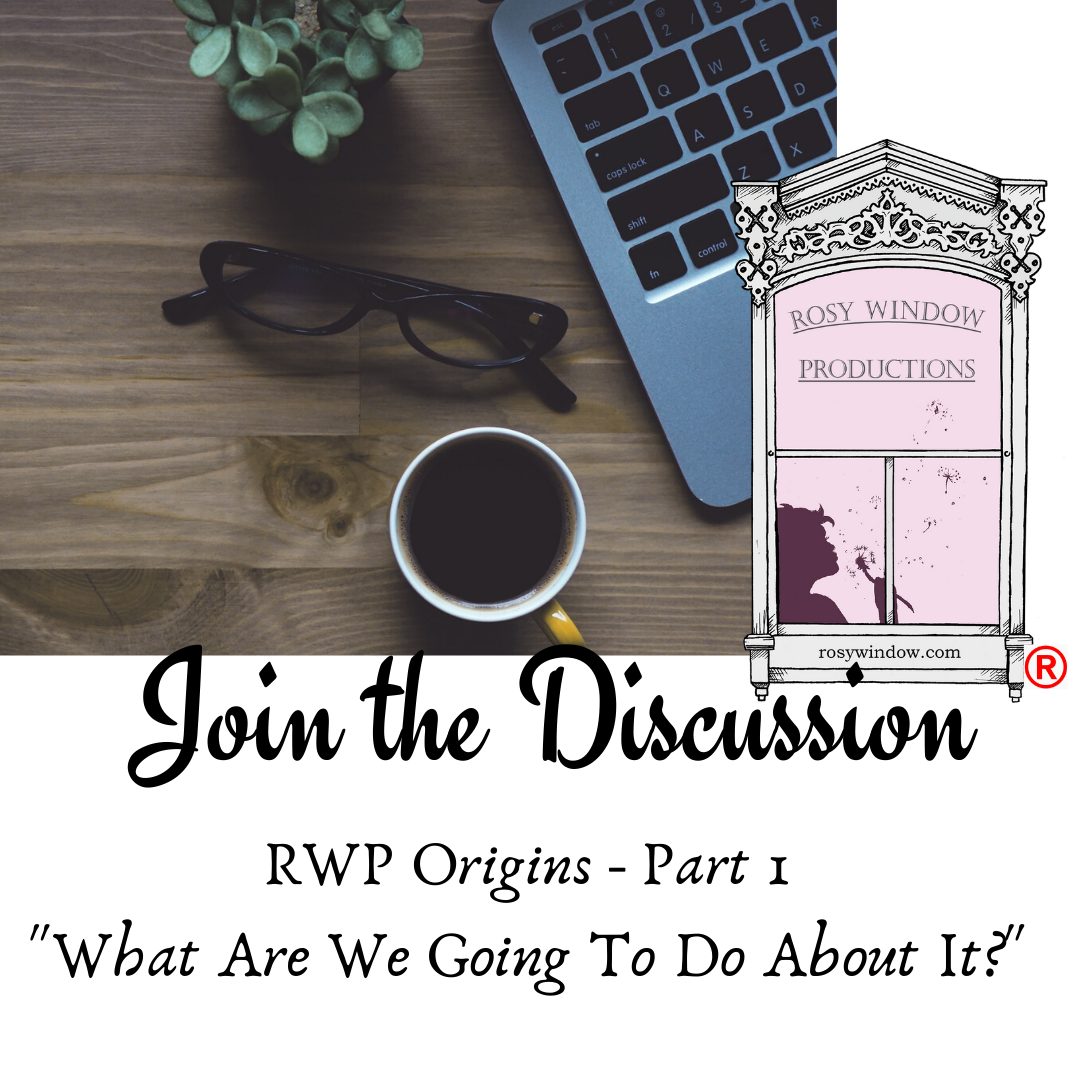
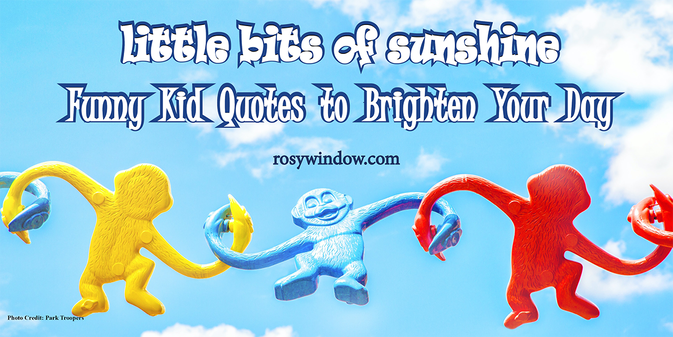
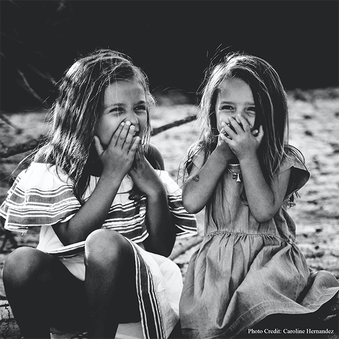

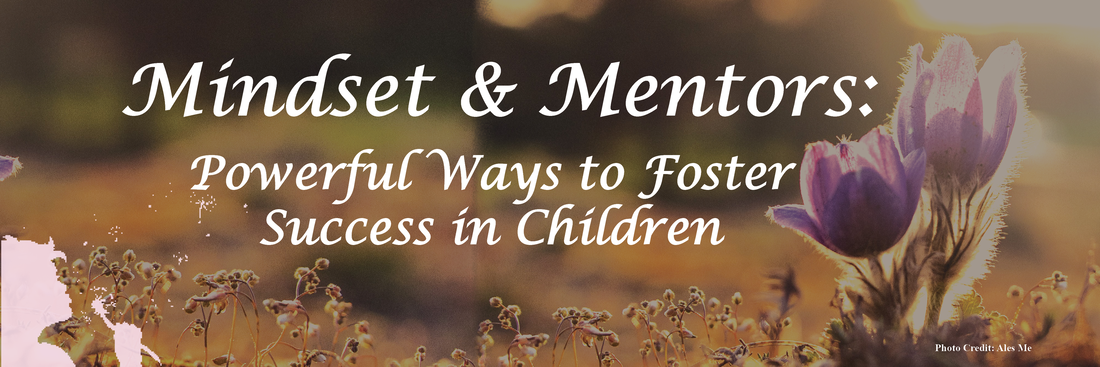
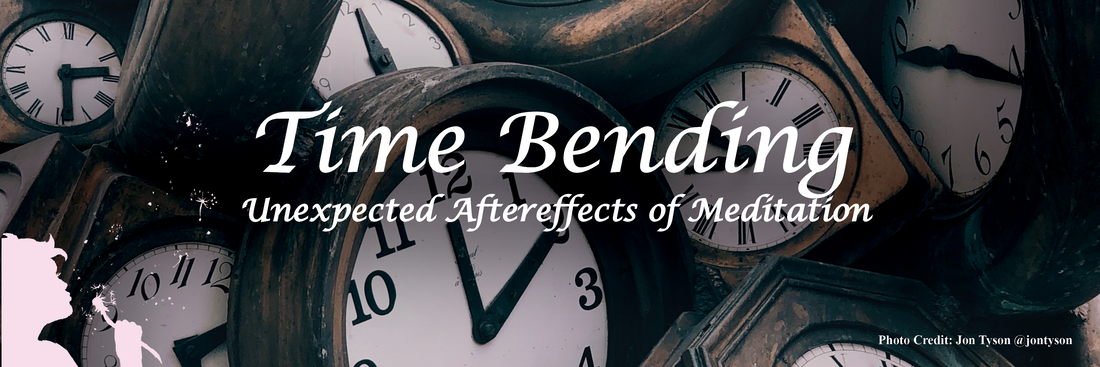

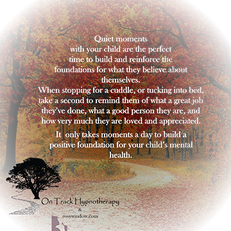



 RSS Feed
RSS Feed
